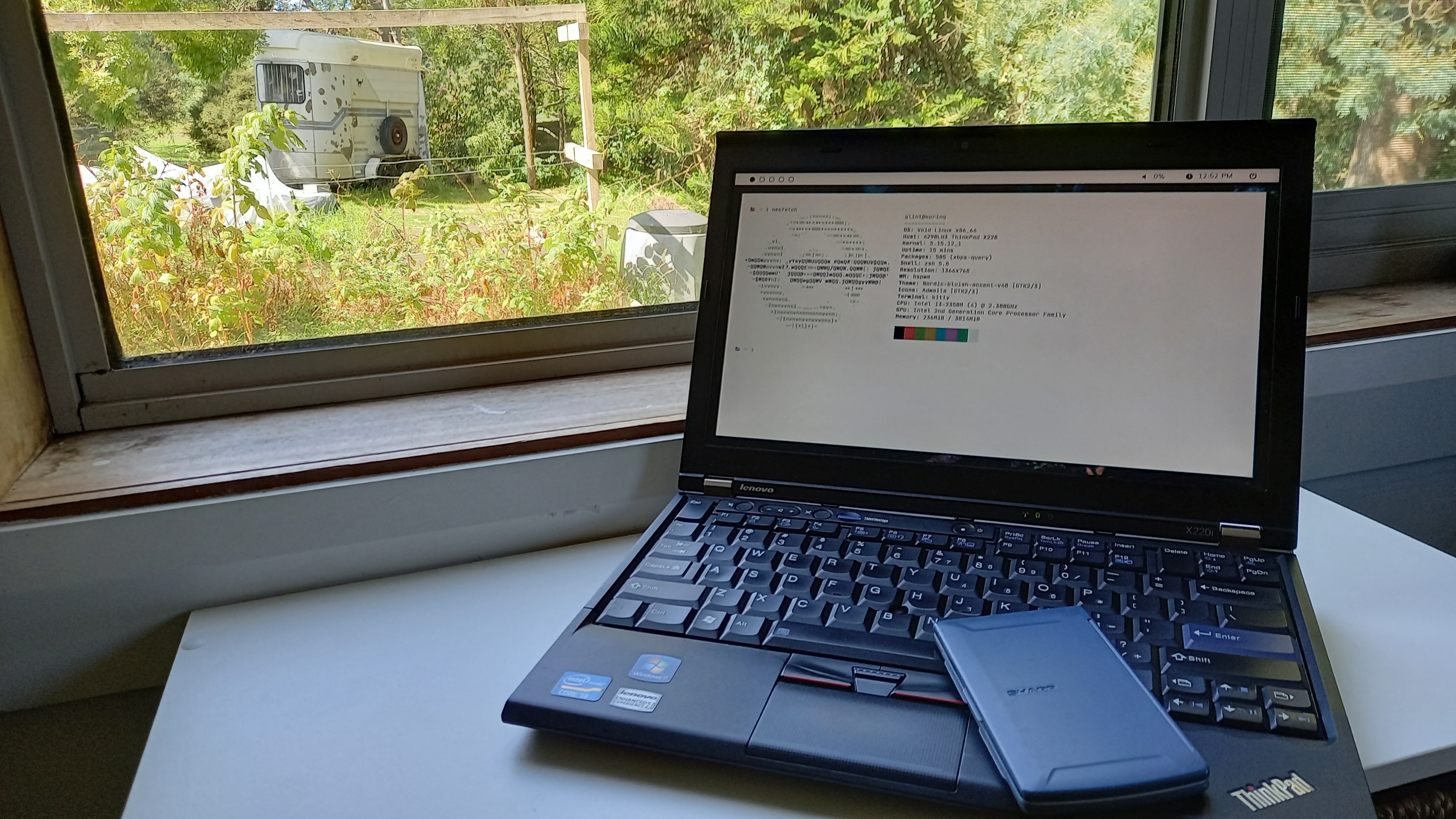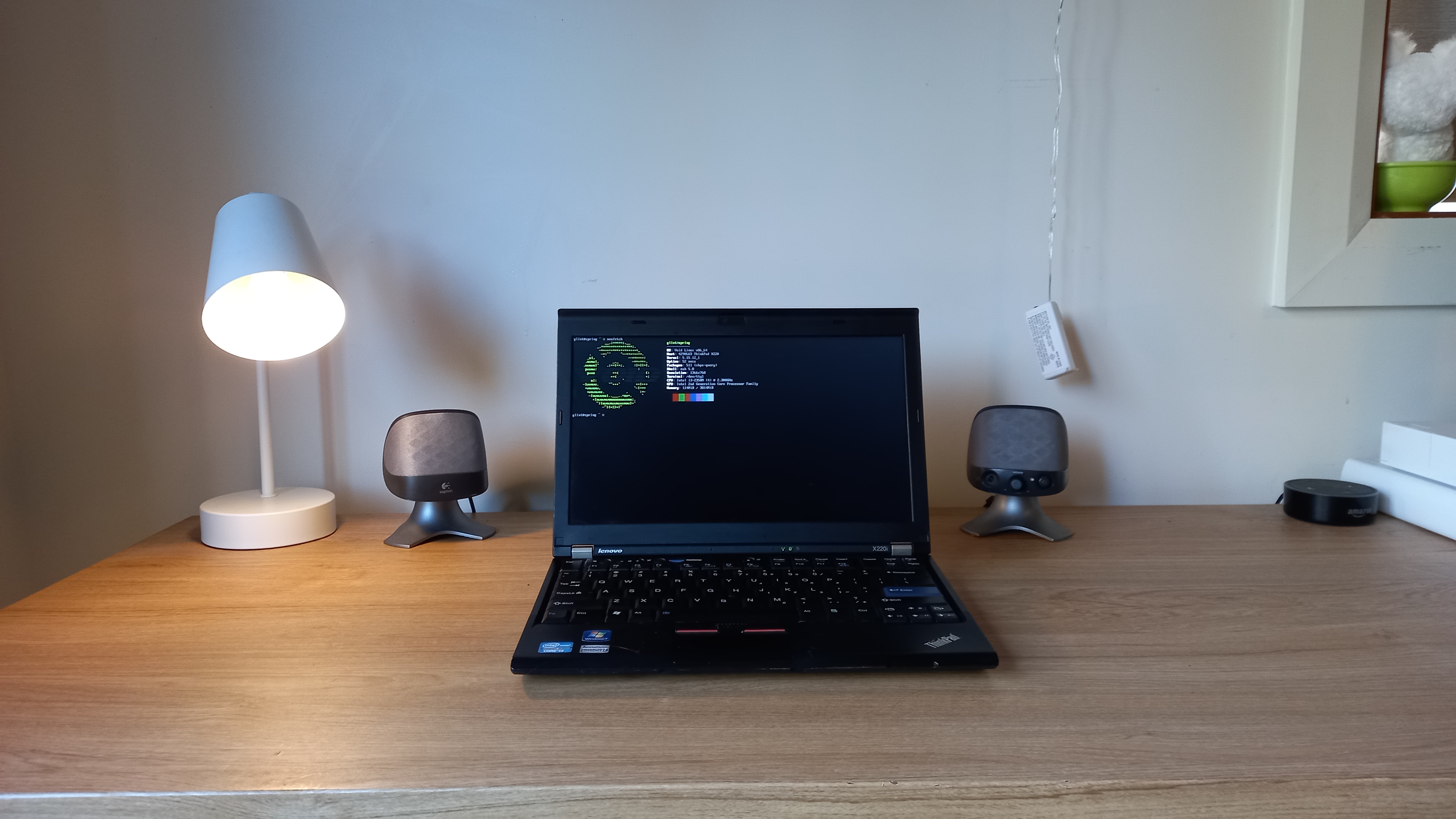Void linux


Credit to glint for the pictures.
What do others think about it?
As mentioned in links, there were people before me that
said a lot of smart stuff about void.
If you're interested in the subject, i would highly recommend reading:
- Why Void Linux? by Steve Litt
- Void Linux Propaganda by chtc
- Void's own website
- ... Or my own barely comprehensible opinion of void included below.
Why won't you shut up about it?
I like it. Not much else to say. I think it does everything it needs to do correctly and doesn't get in the way of the user as much as distributions like:
- Debian (or derivatives)
- Arch (or derivatives)
- Alpine
- Gentoo
- NixOS
- Guix
- and many others that i don't care about enough to mention...
What's so good about it?
It's fast
Blazing fast because it's based on a modern kernel and uses a modern toolchain. It's also a lot smaller than the other distributions so there isn't much software that gets in the way.
Not a fork!
Unlike trillions of other existing distros, Void is not a modification of an existing distribution which makes it immune to upstream issues. Void's package manager and build system have been written from scratch and they are well worth the switch. They're wa better compared to package managers like apt, pacman or even emerge.
Stable rolling release
Void focuses on stability, rather than on being bleeding-edge. Install once, update routinely and safely.
runit
runit is a simple and effective approach to initialize the system with reliable service supervision. Refer to the Void Handbook for an introduction.
$ void-docs
C library diversity
Void Linux supports both the musl and GNU libc implementations, patching incompatible software when necessary and working with upstream developers to improve the correctness and portability of their projects.
Void Linux is available for anyone as it supports:
- amd64/x86_64 glibc/musl
- i686 glibc/musl
- arm64/aarch64 glibc/musl
- armhf/armv7hf glibc/musl
- armel/armv6l glibc/musl
- PowerPC glibc/musl unofficial
XBPS
(supported by xtools)xbps is the native system package manager, written from scratch with a 2-clause BSD license.
XBPS allows you to quickly install/update/remove software in your system and features detection of incompatible shared libraries and dependencies while updating or removing packages (among others). Refer to the Handbook for an overview.
xbps-src
xbps-src is the xbps package builder, written from scratch with a 2-clause BSD license.
This builds the software in containers through the use of Linux namespaces, providing isolation of processes and bind mounts (among others). No root required!
Additionally, xbps-src can build natively or cross compile for the target machine, and supports multiple C libraries (glibc and musl currently).
Availabilility (for users)
Void Linux is available for anyone as it not only maintains an xfce image, but also mostly inscentivises using the minimal image and installing it alongside the Handbook It's an amazing resource of knowledge.
Cool void specific software
Here is some more interesting / useful void-specific software examples that may come in handy when using the distro.
- vpm - An XBPS package management helper for VoidLinux
- vpnd - Notifications about Void Linux package updates, via systray icon or pop-up notifications
- vsv - Manage and view runit services
- xdeb - Convert Debian packages to Void Linux ones. Be careful with this one. It's not included in the repositories for a good reason!
